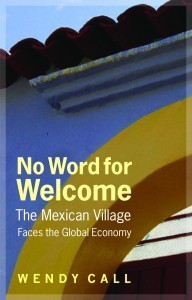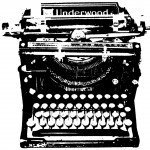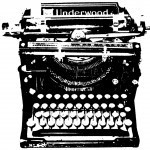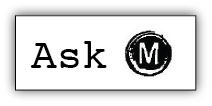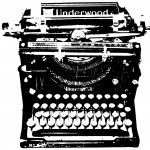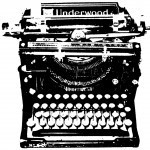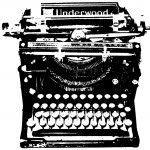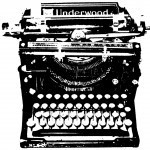Midge Raymond's Blog, page 50
February 21, 2011
Weekly Writing: Guest prompt by author Wendy Call
I am thrilled to present this week's writing prompt by Wendy Call, whose writing exercises are among the most challenging and thought-provoking I've encountered.
First, a little introduction: Wendy is a writer, editor, and teacher of creative writing, and has been a writer-in-residence at myriad universities and organizations throughout the country, including the American Antiquarian Society, Harborview Medical Center, Hedgebrook, New College of Florida, and Seattle's Richard Hugo House. This fall, she will be Distinguished Visting Writer at Cornell College.
Wendy is the co-editor, with Mark Kramer, of Telling True Stories: A Nonfiction Writers' Guide from the Nieman Foundation at Harvard University , and she is the author of the forthcoming book No Word for Welcome: The Mexican Village Faces the Global Economy
, and she is the author of the forthcoming book No Word for Welcome: The Mexican Village Faces the Global Economy , which Sandra Cisneros has praised as "fascinating" and "beautifully written" (you can read an excerpt here). Visit Wendy online at www.WendyCall.com, and be sure to check out her blog: Many Words for Welcome.
, which Sandra Cisneros has praised as "fascinating" and "beautifully written" (you can read an excerpt here). Visit Wendy online at www.WendyCall.com, and be sure to check out her blog: Many Words for Welcome.
Here's Wendy's prompt — enjoy!
For this writing exercise you will need 10 blank index cards (or small pieces of paper).
Step 1:
On each of the first five cards, write ONE thing you (or your main character) was obsessed with before the age of ten. (You know, Matchbox cars, ponies, the red-haired kid down the street, whether your mother meant it when she said she might trade you in for a different model…) Anything goes. The weirder the better.
Step 2:
On each of the second five cards, write one thing you (or your main character) has been obsessed with in the last five years. (What? You're still thinking about that red-haired kid?) Dig deep. Write down the things you hate to admit you think about (and think about so much).
Step 3:
Set each stack of cards in front of you, face down. Then, turn over one card from each stack, so you are looking at a childhood obsession and a current (or recent) obsession. Write about the relationship between those two things. Go for fifteen minutes. If you run out of steam, choose another pair.
_____________
Wendy also has some excellent resources for those of you seeking out new prompts:
I love writing prompts. Pretty much everything I've ever published has begun as a writing prompt and/or a freewriting exercise. Here are a few of my favorite books for writing prompts:
1) Naming the World And Other Exercises for the Creative Writer, edited by Bret Anthony Johnston (Random House, 2008), is a fantastic anthology of prompts for the prose writer.
2) Anne Bernays' and Pamela Painter's What If? Writing Exercises for Fiction Writers (Harper Collins, 1995) is my absolute favorite – even though I'm not a fiction writer.
3) I must admit that some of the exercises in Brian Kiteley's two books, 3 AM Epiphany and 4 AM Breakthrough: Uncommon / Unconventional Writing Exercises That Transform Your Fiction (Writer's Digest Books (2005 and 2009), rather baffle me, but most of them work extremely well.
4) And my failsafe book of writing prompts if whatever book of poetry I happen to pull from my shelf. I open to a random page, write down the first two lines I see, and go from there.

February 14, 2011
Weekly Writing: Valentine's Day
Happy Valentine's Day, writers!
I hope you enjoy celebrating love and friendship today, both on the page and off. Meanwhile, here's this week's prompt for your writing pleasure:
You receive a stunning bouquet of flowers. The note is unsigned and simply reads, "Thank you."
Who is it from? And why? Write at least two pages.

February 7, 2011
Weekly Writing: Music
What do you listen to while you write? Or do you prefer silence, or the hum of the city, instead?
Music (and other sounds, for that matter) can do so many things for writers — inspire, create a mood, even distract. (I, for one, can't write when I'm listening to anything with lyrics.) Virginia Woolf listened to Beethoven's late quartets while writing The Waves (see Flavorwire's post 59 Things You Didn't Know About Virginia Woolf for more tidbits). And check out what author Michael Cunningham has to say about music and writing.
So for this week's writing exercise, let's see where music can take you:
Choose a favorite piece of music. Listen to it and write about the first time you heard it. Include as many details as possible: where you were, what you wore, what time of year it was, what time of day. Aim to write at least two pages … and let the piece wander wherever it wants to go.

February 2, 2011
Ask Midge: Should I pay a reading fee?
Q: I've noticed that some publications now charge reading fees, and I've heard a lot of writers say this isn't ethical. When, if at all, is it okay to pay a reading fee? — M.K., Los Angeles
A: The short answer is: Almost never. The vast majority of reputable literary magazines do not (and should not) charge reading fees.
However, there are a few exceptions. One is if you enter a contest — most contests run by literary magazines charge reading fees, and this is perfectly reasonable because they offer cash awards to winners and often finalists as well (they may also offer a stipend to the contest judge). Many independent and university presses charge reading fees for their contests, for the same reasons.
A normal fee for a short story, poetry, or essay contest is $10-15. Some lit mags are charging $20 or more — for example, Gulf Coast charges $23 per entry for its annual prizes, which includes a subscription; The Iowa Review charges $20, and $30 will get you a subscription as well. These are both great magazines (and it's always worth supporting them by subscribing), but these fees are quite a lot for most writers, unfortunately, and they'll add up very quickly if you hope to enter a lot of contests. Small presses will usually ask for a fee of $25 per manuscript for a contest — I've seen higher, but this still seems to be the norm. You shouldn't pay a fee for a regular submission, whether you're sending an essay to a magazine or a novel to a small press.
Another exception is the "administration fee" that many magazines (among them The Missouri Review and Ploughshares) charge for using their online submissions systems — it's usually around $3, which is roughly what it would cost you in printing and postage to mail in a hard copy anyway, and it'll save you some time and maybe even few trees. While the majority of magazines still accept online submissions without charging this fee, it's not an unreasonable one — and these magazines do not charge for regular mail submissions.
So the general rule is — fees are expected for contests; fees should not be paid for regular submissions, even if they pay their authors (legitimate magazines that can afford to pay authors do not charge regular reading fees). If you encounter a publication that charges fees for regular submissions, do a quick Google search on that publication, and what you find will probably help you decide that it's just not worth it.

January 31, 2011
Weekly Writing: Stories everywhere
I love finding stories — and, when I'm paying attention, I find far more beginnings out there than than I'm ever able to finish. But for a writer, this is the best place to be.
For me, it's usually the little things that jump-start a story: a snippet of overheard dialogue, a random but intriguing tidbit in the newspaper. In the Forgetting English story "The Road to Hana," it was a stolen ring; in "The Ecstatic Cry," it was an exploration about why someone would live at the ends of the earth.
So here's this week's exercise:
Find a story. Write.
(If that sounds a little vague, here are a few examples: find a PostSecret that intrigues you, and make up the rest; describe a stranger on the street, and let that lead you into a story about this person; choose a political figure and write about him/her as a child — you can literally choose anything; see where it takes you, and let it evolve as it wants to.)
Happy writing.

January 24, 2011
Weekly Writing: The senses
Greetings, writers.
I've got two writing exercises for you today. (It was supposed to be only one, but when I looked at it, I thought it might be a little too depressing for a Monday. So I decided to go for a little balance.)
1. Write about the texture of despair.
2. Write about the sound of joy.
Have an inspiring and fruitful week of writing!

January 20, 2011
Book Promo 101: Book trailers
This is the first post that will eventually become a semi-regular series on book promotion — which, I have learned, makes writing look like the easy part.
Today: Let's talk about book trailers. I debated whether or not to make a trailer for Forgetting English when the book came out in 2009. Even as a writer and reader, I must confess that I've always found the concept of a book trailer a little strange; while movie trailers for films are an obvious marketing strategy, I think it's a challenge for most writers (particularly fiction writers) to do justice to their books in a media that isn't an obvious match with the product, i.e., words and story and the imaginative collaboration they create with the reader. How to translate this into video was a mystery to me. Actually, it still is.
when the book came out in 2009. Even as a writer and reader, I must confess that I've always found the concept of a book trailer a little strange; while movie trailers for films are an obvious marketing strategy, I think it's a challenge for most writers (particularly fiction writers) to do justice to their books in a media that isn't an obvious match with the product, i.e., words and story and the imaginative collaboration they create with the reader. How to translate this into video was a mystery to me. Actually, it still is.
The main problem for fiction writers, I think, is how to portray our stories visually. We write because we love words, after all, and not all of us are also actors or have a great visual sense or have the budget to hire professionals. I've also found that attempts to dramatize a novel for the tiny screen can backfire in a huge way if not done just right. That said, I'm not sure what that "right way" is. Many writers get around this challenge by focusing on something else other than the story itself, such as the author or book's backstory — a great solution in that it gives readers a little something more than what they already know from the jacket copy or author bio.
Challenges aside, there are definitely a lot of great book trailers out there. One of my all-time favorites is Dennis Cass's award-winning trailer, Book Launch 2.0 — which is not only hilarious, but it does everything a book trailer needs to do: engage, entertain, and pique interest in the author and the book. The trailer doesn't actually mention his book, Head Case , which I might have done — but it's still a great one.
, which I might have done — but it's still a great one.
Another favorite is bestselling author Jenna Blum's trailer for her new novel, The Stormchasers . Instead of trying to visually capture the story itself, the trailer takes the form of an interview with the author — a great way to promote a book, as readers are usually curious about the origins of the book, the writing/research process, and other things that don't appear on the jacket copy. Jenna answers these questions, tells us about herself and the book — and also adds the atmospheric details that give us a sense of what the story is all about, both literally and metaphorically.
. Instead of trying to visually capture the story itself, the trailer takes the form of an interview with the author — a great way to promote a book, as readers are usually curious about the origins of the book, the writing/research process, and other things that don't appear on the jacket copy. Jenna answers these questions, tells us about herself and the book — and also adds the atmospheric details that give us a sense of what the story is all about, both literally and metaphorically.
I also like Judy Reeves's book trailer for A Writer's Book of Days — the trailer does a wonderful job of showing us what's at the heart of the book: writing and inspiration, creativity and compassion. Even though the book is nonfiction, it tells a story — one that perfectly fits the book's themes.
— the trailer does a wonderful job of showing us what's at the heart of the book: writing and inspiration, creativity and compassion. Even though the book is nonfiction, it tells a story — one that perfectly fits the book's themes.
As Alan Rinzler points out in a blog post on book trailers, research indicates that you've got a viewer's attention for about three minutes — but I'd go even shorter than that. I rarely watch anything for more than a minute or two — "Book Launch 2.0″ was an exception because it was so funny, and you'll note that both Jenna's and Judy's trailers are almost exactly two minutes long.
Yet even after watching a few good book trailers and more than a few bad ones, I came up with no great ideas for my own book. Promoting a short story collection from a university press has plenty of marketing challenges, and creating a book trailer seemed to be among the bigger ones. So Forgetting English went trailer-less for nearly two years, and in the meantime my husband, John Yunker, published a novel, The Tourist Trail
went trailer-less for nearly two years, and in the meantime my husband, John Yunker, published a novel, The Tourist Trail , and he too began to wonder if he should do a trailer. Because he self-published his book and needed all the promotion he could get, we began thinking of ideas, all of them terrible. While we both agreed, naturally, with the reviewer who called John's book "epic, sprawling, and strikingly cinematic," we still couldn't find a way to create a trailer that wasn't melodramatic and lame.
, and he too began to wonder if he should do a trailer. Because he self-published his book and needed all the promotion he could get, we began thinking of ideas, all of them terrible. While we both agreed, naturally, with the reviewer who called John's book "epic, sprawling, and strikingly cinematic," we still couldn't find a way to create a trailer that wasn't melodramatic and lame.
Then he had a great idea — one that had nothing to do with the subject, content, characters, or themes of his book. But it didn't need to. And best of all, his idea incorporated my book, too. So we put together a script, picked up John's iPhone, and did the whole thing over Thanksgiving weekend. It cost us nothing but time.
And this is one of the important things to consider — how much time and/or money are you willing to invest in a book trailer? For us, the answer was a holiday weekend and zero money — so we had the perfect budget. But authors do have to be aware of the costs involved and to know that it might not be a great investment, especially since no one really knows how well book trailers sell books. Also, once you have a book trailer, the next challenge is to find ways to get people to view your book trailer. We were fortunate that many in the literary community showed it some love, including Poets & Writers, Shelf Awareness, GalleyCat, The Seattle Times, and many generous bloggers, Facebook friends, and tweeters (we thank you all). And we've noticed a slight uptick in book sales (we're thankful for that, too), but nothing overwhelming, which makes us glad we didn't spend a fortune. Still, it was worth doing in that it got our names and our books out there, and from the feedback we've gotten, it's given people a few moments of fun.
I'd love to hear your thoughts on what makes a good book trailer — send them along!
And, finally, here is our book trailer, Love in the Time of Amazon.com, for your viewing pleasure:

January 17, 2011
Weekly Writing – Why do you write?
Today we're going deep, writers.
My exercise of the week is inspired by Rainer Maria Rilke, from Letters to a Young Poet:
"Go into yourself. Search for the reason that bids you write; find out whether it is spreading out its roots in the deepest places of your heart; acknowledge to yourself whether you would have to die if it were denied you to write. This above all—ask yourself in the stillest hour of your night: must I write?"
Write (at least) two pages about why you write.

January 14, 2011
Facebook Fridays
I recently adopted my friend Kelli Russell Agodon's resolution in which she decided not to log on to Facebook except on Fridays. (I have cheated once, and I have confessed. Otherwise, I've been pretty good. Though as Kelli pointed out, I can actually cheat any time and she wouldn't know unless she was also cheating.)
As Kelli points out on her awesome blog, Facebook takes our time away from other things we could otherwise be doing — and while these things will be different for everyone, for writers there's always one thing we could be doing while we're on Facebook. We could be writing. And we probably should be.
Don't get me wrong — I love Facebook. And the reason I cheated on my resolution in the first place was because I had a little separation anxiety; I wanted to see what friends were up to; catch up with those in different cities, states, countries; post random thoughts or photos. I also must admit that I wanted something to distract me from tackling a tricky scene I've been struggling with.
It's that last thing that has made me realize that Facebook Fridays are a very good idea indeed.
So I've resolved to do better, and I have. And it's like starting an exercise routine or a diet or some other equally challenging resolution — it takes some getting used to. But once you're there, you realize how well it works — and how glad you are that you tried it.
This isn't to say I'll keep it up forever — I've already allowed for a couple of exceptions, such as brief log-ins to reply to messages or respond to friend requests, and eventually I may decide that it makes more sense to log on to Facebook once a day for ten minutes than to spend several hours catching up on Fridays — but so far I love how it's going. For one, it's forcing me not to use Facebook as an excuse to turn away from the page when things get difficult (as tempting as it may be). Better yet, while it's valuable to stay connected virtually, it's even more important to be connected in reality. Instead of relying on my Facebook mobile app while standing in line at the post office or waiting for a friend, as I used to do all too often, now I keep the phone hidden and absorb the world around me. And this is the best possible scenario for any writer.
So if you're on Facebook, come visit me. And if I don't catch you today, I'll see you next Friday.

January 10, 2011
Weekly Writing Exercise
Happy Monday, writers. (Yes, I realize this is an oxymoron … I'm just trying to create a little positive energy here.)
I hope you enjoyed last week's debut writing exercise. Here's one for this second week of 2011:
Pull a random item out of your wallet and write a full page about it.
I'm already having fun with this one, having grabbed an old movie-ticket stub. And the nice thing about this exercise is that you can do it every day of the week and come up with new material every time, especially if you have a wallet in as much disarray as mine is. (Or maybe it'll inspire organization instead.)
Either way, happy writing this week!



